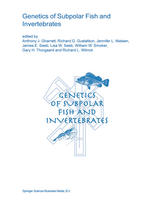

Most ebook files are in PDF format, so you can easily read them using various software such as Foxit Reader or directly on the Google Chrome browser.
Some ebook files are released by publishers in other formats such as .awz, .mobi, .epub, .fb2, etc. You may need to install specific software to read these formats on mobile/PC, such as Calibre.
Please read the tutorial at this link: https://ebookbell.com/faq
We offer FREE conversion to the popular formats you request; however, this may take some time. Therefore, right after payment, please email us, and we will try to provide the service as quickly as possible.
For some exceptional file formats or broken links (if any), please refrain from opening any disputes. Instead, email us first, and we will try to assist within a maximum of 6 hours.
EbookBell Team

0.0
0 reviewsFisheries genetics researchers will find invaluable the thirty-eight peer-reviewed contributions in this book, presented at the 20th Lowell Wakefield Fisheries Symposium "Genetics of Subpolar Fish and Invertebrates," held in May 2002 in Juneau, Alaska.
Looming over concerns of lost fisheries stocks and persistent erosion of genetic variability are predictions of global warming, which may further tax genetic resources. One consequence is an increased reliance on genetic applications to many aspects of fisheries management, aquaculture, and conservation.
The contributions in this book are important to modern fisheries science and genetics, and illustrate the evolution of the field over the past decade. The improved technology provides tools to address increasingly complicated problems in traditional applications and ecological and behavioral studies. The union between molecular and quantitative genetics, where many of the major questions about population structure and evolution remain unanswered, will also benefit from the new technologies.